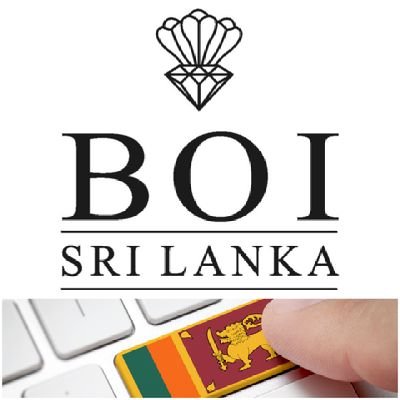-By A Staff Writer

(Lanka-e-News -08.Nov.2025, 11.15 PM) Inside the BOI headquarters in Colombo , files tell their own story. Many permit files show incomplete transfer papers. Some are missing signatures. Others carry hand-written notes such as “verified by above” with no initials or dates.
In one stunning example, a 2018 duty-free permit for a German-made SUV listed the importer as ‘-------- Apparel Export (Pvt) Ltd’. The vehicle, chassis number ending ---45, was registered the next year under **Mrs. **— the director’s spouse, with no record of company use.
That vehicle, Lanka E News learned, is now privately parked at a luxury villa in Battaramulla.
Every government, from the 1980s to the present, has promised to “tighten BOI monitoring.” Yet, none have delivered. BOI remains a political playground — its board appointed by ministers, its directors rotated with every cabinet change.
In 2021, an internal audit report reportedly flagged 9,000 unaccounted duty-free vehicles. The report was never made public.
“The BOI is untouchable,” says a Treasury official. “They are supposed to bring in foreign direct investment, so everyone looks away. Meanwhile, they cost us billions.”
While digging into the duty-free imports, Lanka E News uncovered a second, even larger scam. BOI-approved garment exporters routinely import raw materials under the “100 % export” rule — free of customs duty.
Yet, large volumes of those fabrics, zippers and accessories have been quietly diverted to the Colombo and Maharagama wholesale markets, sold at commercial rates.
Two retired customs officers estimated the total lost revenue at more than Rs. 75 billion.
“The system was simple,” one explained. “Import materials duty-free, pretend it’s for export, sell it locally. The profit margin is 300 %. No taxes, no questions.”
Lanka E News verified through invoices and port manifests that at least 11 major apparel exporters were implicated. The materials—cotton, polyester, elastic tape—were found resold through domestic suppliers such as Delkanda and Maradana traders.
While the billionaires play hide-and-seek with tax loopholes, the consequences fall on the poorest.
Rural schools still run without toilets.
Children walk to class barefoot.
Hospitals face drug shortages.
Public servants receive delayed wages.
An economist at the University of Colombo put it plainly:
“When seven billion disappears in unpaid import duties, every taxpayer pays for it — in the form of broken schools, unpaid nurses and empty hospital shelves.”
The disparity between privilege and poverty has never been more visible.
Lanka E News has identified 80 corporate entities suspected of abusing BOI vehicle and raw-material concessions. They include well-known apparel giants, construction conglomerates and even hospitality firms.
Many of these companies list family members as shareholders or consultants, allowing them to import luxury vehicles “for project purposes.” Others re-export nothing, yet still retain BOI status.
Over the coming weeks, Lanka E News will begin a “Name and Shame” series, exposing each corporation, director and family member linked to this multi-billion-rupee fraud.
The new administration has pledged a “zero-tolerance” stance on corruption. The Customs Ordinance Amendment 2024 grants the Director-General powers to audit BOI duty-free imports for the first time and to reclaim unpaid taxes with 200 % penalty.
If properly enforced, the Treasury could claw back as much as Rs. 7 billion from vehicles and Rs. 75 billion from material diversion.
But political will remains the question. Will the BOI Board cooperate? Will the Attorney-General act? Will Parliament have the courage to publish the audit?
As one senior Revenue Department officer told us:
“It’s easy to chase the poor trader for a missing tax form. But who will chase the tycoon who parks his Bentley under a BOI permit?”
The BOI duty-free scheme was created to attract investors — not to enrich them illegally. It was meant to generate employment, export earnings and technology transfer. Instead, it has evolved into a playground for tax-free privilege and political immunity.
Every rupee lost to these schemes is a rupee stolen from public health, free education and social welfare. Sri Lanka’s dream of equitable development will remain a mirage as long as its elite can import cars and sell duty-free goods while the nation’s poor struggle to afford a pair of shoes.
Our investigation continues. We have submitted copies of import manifests, BOI permits and registration data to the National Audit Office, the Sri Lanka Customs Enforcement Division and the Ministry of Finance.
The message is clear:
The BOI must publish a full list of all vehicles imported under its scheme since 1980.
Customs must investigate every transfer of those vehicles to private ownership.
Treasury must reclaim lost duties with retroactive penalties.
The BOI once symbolised investment and progress. Today it symbolises privilege and impunity.
Until the billions are recovered — and the billionaires held accountable — this scandal will remain a national insult written on every pothole, every broken classroom desk, and every unpaid hospital invoice.
-By A Staff Writer
---------------------------
by (2025-11-09 00:32:22)
Leave a Reply